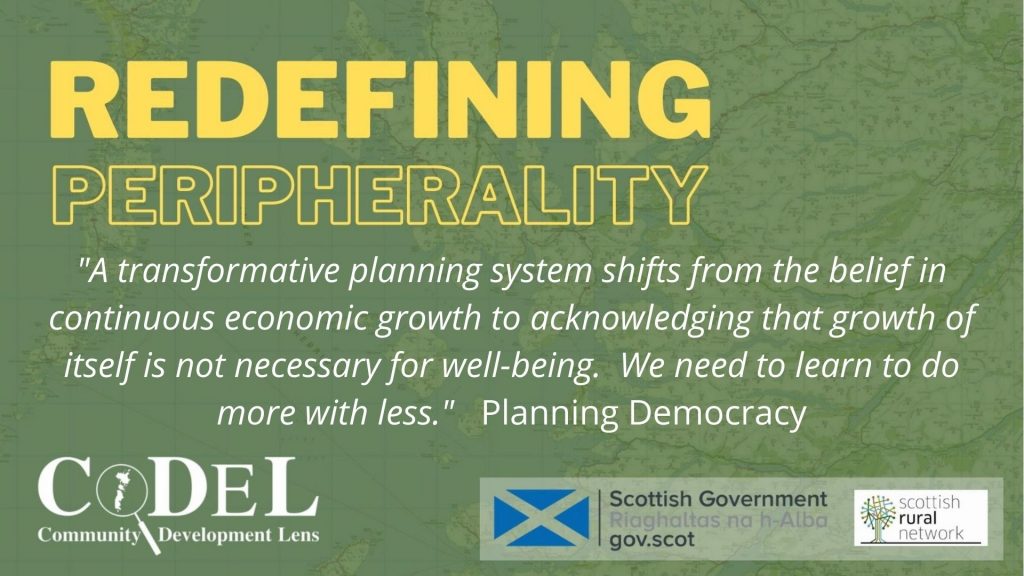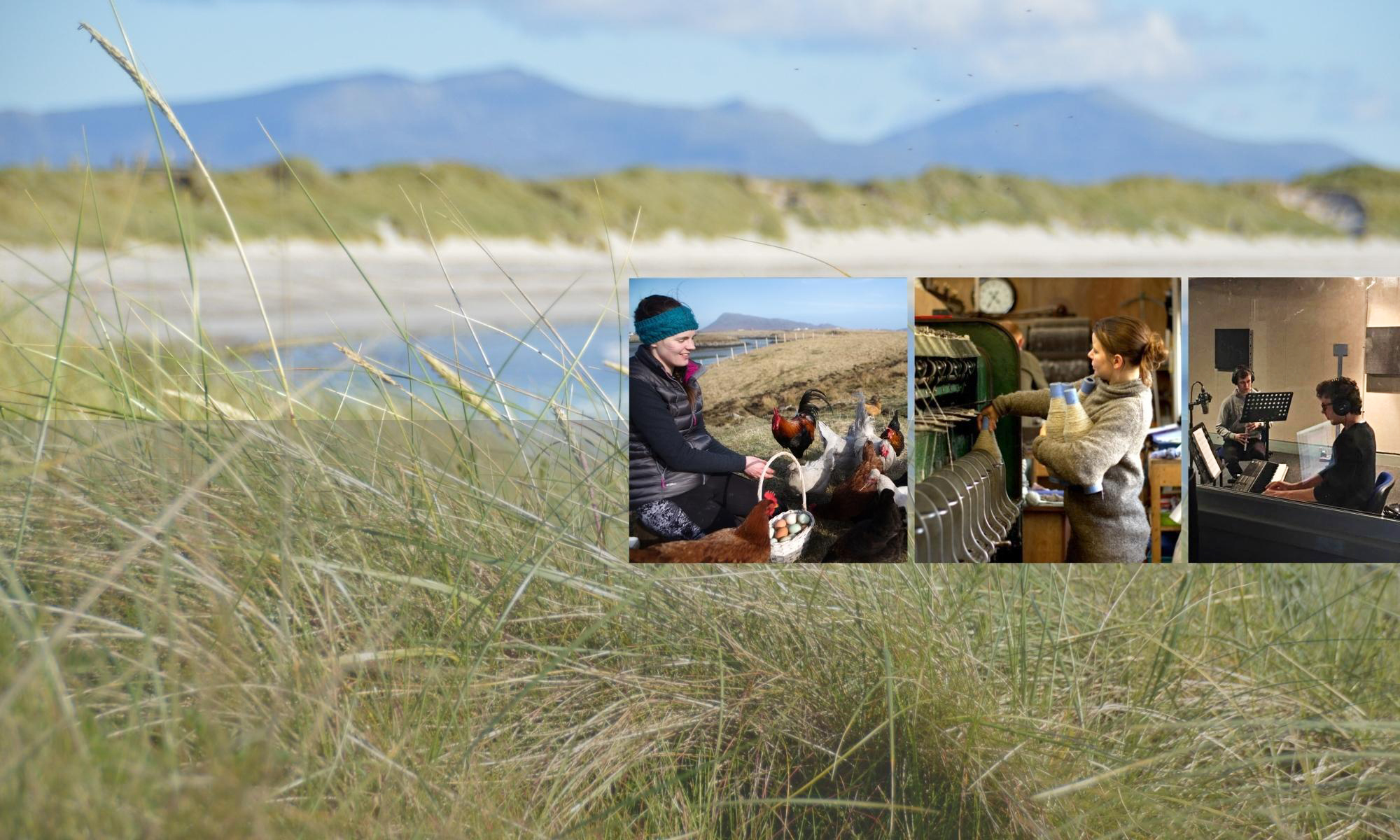
The concept of Redefining Peripherality embraces the feelings, rooted in lived experience, of those who live in so-called peripheral areas, as we saw in our last post from Matthias in Ísafjörður, Iceland.
We have an international and vibrant community with inspiring individuals from all over the world, international and innovative companies, a rich cultural life and awesome festivals. Priceless. And not part of any measurement. Having lived in many urban centers before deciding to move to the edge of the Arctic Circle, I have never experienced such an inspiring and international environment anywhere else before. If this is what peripheral means, I certainly embrace it.
Matthias Kokorsch
Sometimes Redefining Peripherality lies in the detail of complex legislation and regulation, such as the Fourth National Planning Framework (NPF4) in Scotland which is currently out for consultation. This is an important document that will affect planning decisions and local plans for the next 10 years in Scotland. This is how Planning Democracy sets out its importance:
Getting the wording right for future planning policies is crucial in ensuring decision makers, including local authority planners, councillors and Scottish Government Reporters are given a clear steer to make the best decisions.
Tackling key issues such as climate change and biodiversity loss are aspirations clearly voiced in this document, but which are not necessarily going to be achieved unless we strengthen some of the policies to make requirements more robust and reduce the number of get out clauses.
Continuous economic growth is not possible, we live on a planet with finite limited resources. We don’t want developments to be given permission just because development itself stimulates the economy.
We have to start to limit development so that we don’t continue to use up the Earth’s precious resources. We need to learn to do more with less and consider reusing and refurbishing buildings, whilst conserving precious land and consuming less.
A transformative planning system shifts from the belief in continuous economic growth to acknowledging that growth of itself is not necessary for well-being. This means NPF4 needs to balance ‘enabling’ good development, with the prevention of unsustainable developments.
Currently the focus is on the former, the latter needs a lot more work. In essence we are urging the government to use NPF4 to enable planning to act as a regulator, as well as an enabler of public interest development.
The Scottish Government consultation is open until 31st March (see here), and this is Planning Democracy’s guide to the consultation.
The invasion of Ukraine has led to soul searching among so many in Europe and across the world. As Russian novelist Mikhail Shishkin wrote recently, “What can a writer do? The only thing he can: speak out clearly. Silence means support for the aggressor.”
Likewise, the climate emergency, the Covid pandemic and the increased wealth disparities in our country and across the globe, already obscene before the pandemic, no longer allow us to remain ‘neutral’, to tinker at the margins. The emergencies are having direct impacts on our daily lives, whether it is extreme weather events or the rise in living costs that are forcing many to choose between being warm or putting food on the table for their children.
As are the impacts of detailed and apparently progressive green legislation and regulation, such as the booming market for carbon offsetting. As major companies buy up more and more land in Scotland and Wales to offset their carbon emissions, agricultural and other land prices are rocketing, taking it far out of the reach of farmers and communities (see Community Land Scotland’s latest report here), while the companies have a legal excuse to avoid reducing any pollution from their core business.
This is the shocking amount of land that the Foresight Group is using to offset carbon for the world’s worst polluters. 8,117 ha is a lot of trees and a lot of land that could be producing food. This doesn’t stop them polluting, just helps them to shift the blame and to let them off the hook.
Gareth Wyn Jones, Sheep and beef farmer, TV Presenter
This means that more and more land is given over to tree planting and taken out of food production just at a time when food security and the urgent need to produce more food locally, organically and sustainably is coming to a head.
In the face of such challenges, it sometimes feels as though all we have time and energy for is to fight against what is not working. However, maybe we misplace our time and energy in doing so. Our Danish colleague Mads Randbøll Wolff introduced us to this quotation from Buckminster Fuller, an American architect, systems theorist, author, designer, inventor and futurist.
“You never change things by fighting the existing reality. To change something, build a new model that makes the existing model obsolete.”
So individually and collectively, as communities and societies, we can embrace the positive challenge of building new models that honour people and planet.
CoDeL’s research on Covid economic impacts across the Northern Periphery discovered some positive initiatives relating to local food supply chains (see report here, p.20), in which legislation and practices relating to health and safety, which are often determined by an economic system geared to urban realities, were relaxed.
The Faroe Islands support Heimablídni, a local concept that allows family businesses to start serving food in their own home without the prior sanitary approvals normally required when starting a cafe or restaurant. And addressing the obstacles to more localised and home slaughtering, Greenland has a concept called “Kalaaliaraq”, establishing designated local slaughtering and trading areas where farmers themselves can use the facility to slaughter and process their meat in a food and safety-approved environment.

